Conductor Geoffrey Simon has combined entrepreneurial prowess with his considerable musical talent to build an international conducting career. The founder of his own recording label, Cala Records, Simon is also featured on a number of recordings for mainstream labels Koch International and Chandos. He has appeared as a guest conductor with a number of prominent orchestras around the world.
Born in Adelaide, Australia July 3, 1946, Simon studied piano performance at the University of Melbourne. After his graduation in 1968, Simon left for the United States in order to pursue graduate studies in cello performance at the Juilliard School. He describes his time there as formative, but intense: "If you're in New York and you're going to have a neurosis, that's the place to have it -- it was so intense, but at the same time, there were the most wonderful musical experiences happening."
In 1969, Simon moved to Bloomington, IN, so he could further his education as a cello student with noted pedagogue Janos Starker at Indiana University. That same year Simon also founded the Bloomington Symphony Orchestra. He remained music director there until he left for the United Kingdom in 1973.
Taking advantage of his close proximity to Europe, Simon studied with a number of prominent conductors including Herbert von Karajan, Rudolf Kempe, Hans Swarowsky, and Igor Markevitch. He also made a number of appearances with significant British orchestras in the mid-'70s, including the Bournemouth Symphony. Although his London debut took place soon after these successes, Simon was unable to cement himself onto a more permanent career footing. In 1977, he lost the John Player Conductor's Award to Simon Rattle.
Simon returned to the United States in 1978, first as a professor of music at the University of Wisconsin in Milwaukee (until 1982), and later at North Texas State University in Denton (1982-1984). For three years, beginning in 1986, Simon served as the music director of the Albany Symphony Orchestra in New York. He held a similar position with the Sacramento Symphony from 1992 through 1996. Since 1997, Simon has been a conductor and advisor to the Northwest Mahler Festival.
In between his Albany and
Sacramento appointments, Simon founded his own recording label Cala, based
in London. In addition to featuring a number of Simon's own recordings, the
label has featured some of London's finest instrumentalists in a series known
as the London Sound. Simon has also been influential in releasing a large
number of previously unavailable historical recordings conducted by Leopold
Stokowski.
-- Links in this box and below refer to my Interviews elsewhere on my website. BD
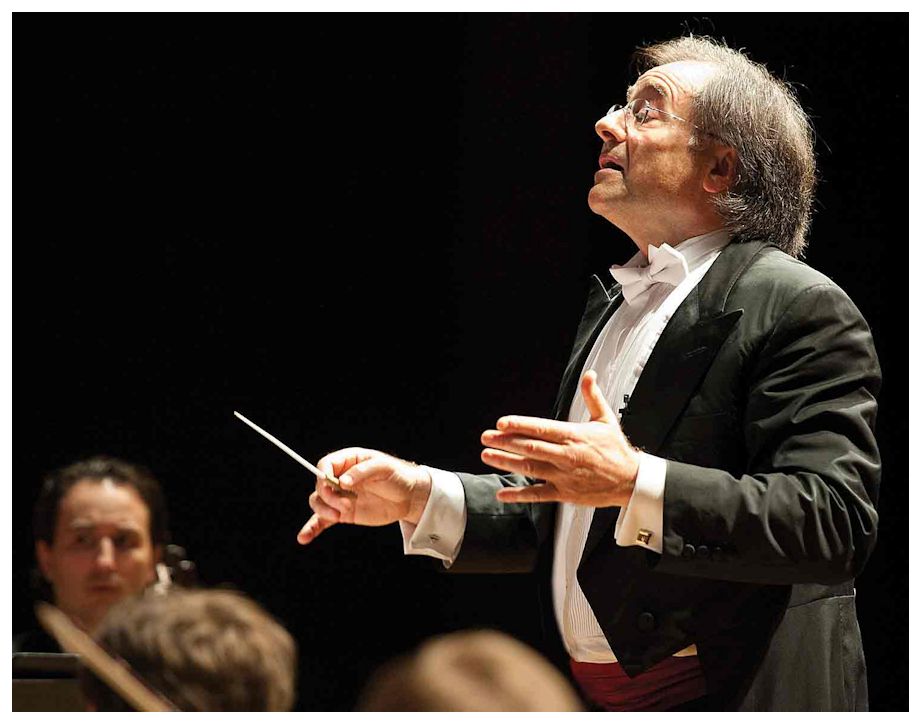
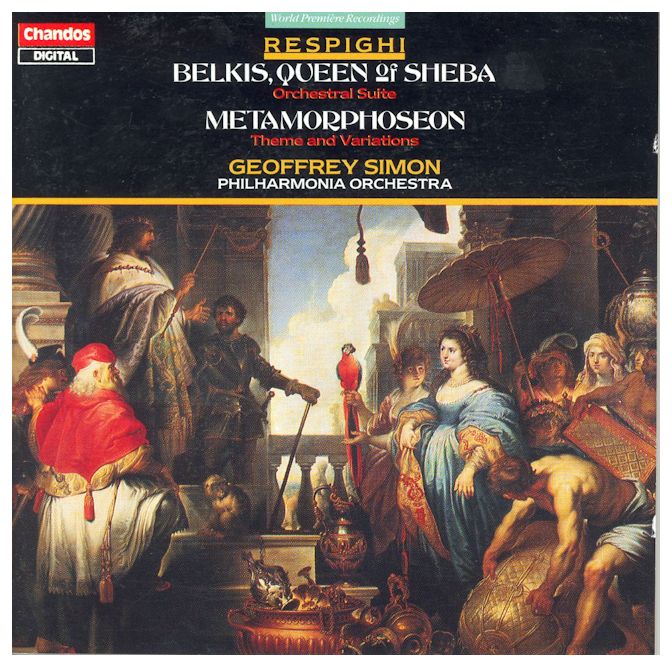 BD: Is it supposed to be larger than life?
BD: Is it supposed to be larger than life?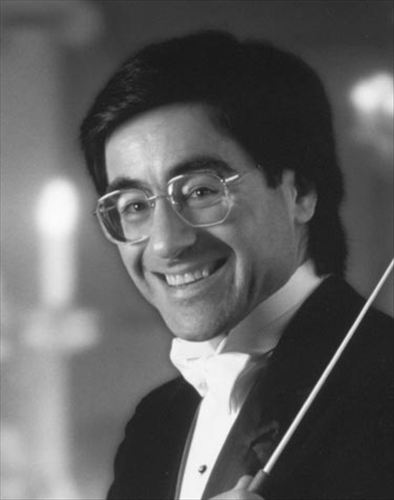 GS: There have been pieces with which I’ve not felt terribly
comfortable. Obligation calls, and one does things. I always
used to say to myself that the piece that’s my very favorite is the
one I’m conducting right now. Now that I’m getting a little bit
less impartial, and am allowing myself to have my favorites
— and my not so favorites. That’s another thing once
you’ve been around the block once or twice.
GS: There have been pieces with which I’ve not felt terribly
comfortable. Obligation calls, and one does things. I always
used to say to myself that the piece that’s my very favorite is the
one I’m conducting right now. Now that I’m getting a little bit
less impartial, and am allowing myself to have my favorites
— and my not so favorites. That’s another thing once
you’ve been around the block once or twice.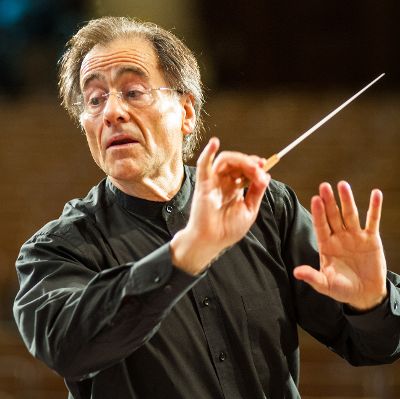 BD: Did you feel you were getting short-shrift?
BD: Did you feel you were getting short-shrift?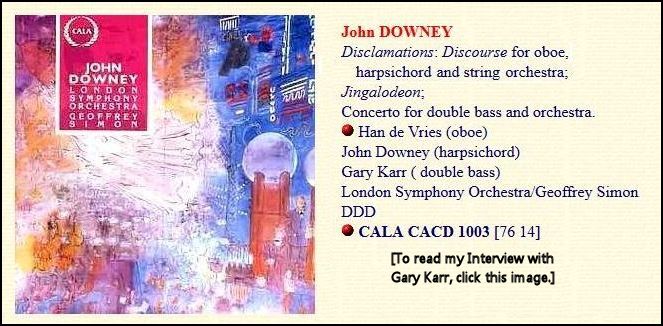 BD: If you start with a higher-level orchestra,
I assume the basics are already done, and you can then continue from there
with interpretation and shaping?
BD: If you start with a higher-level orchestra,
I assume the basics are already done, and you can then continue from there
with interpretation and shaping?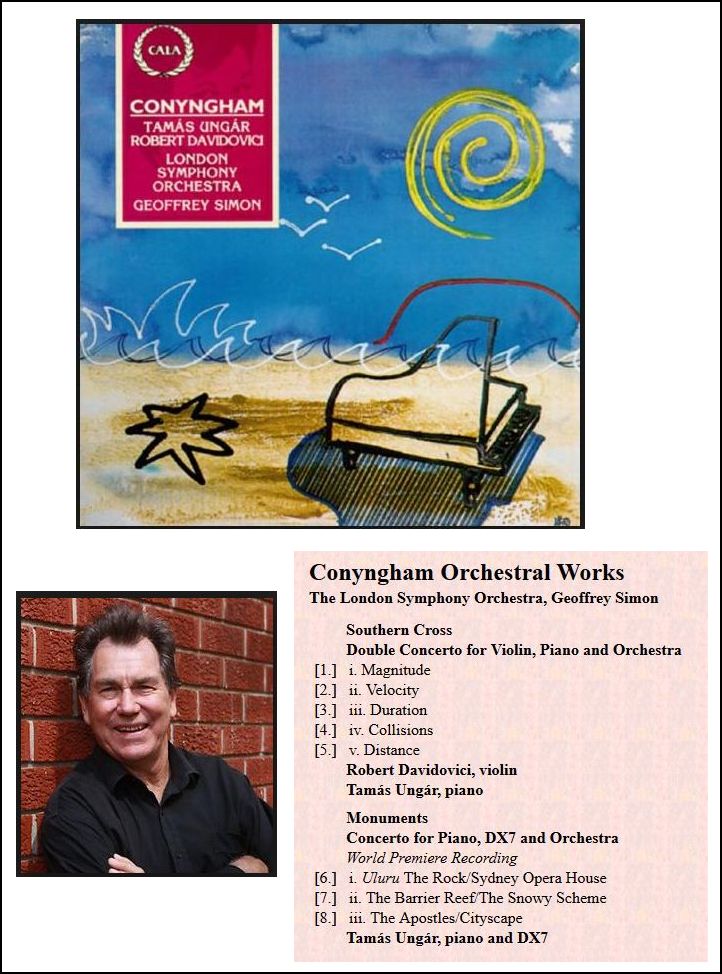 BD: They see that downbeat coming.
BD: They see that downbeat coming.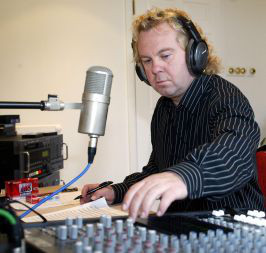 Tim Handley was selected as 2006 Classical Producer of
the Year for his work on Naxos recordings of music by
Tim Handley was selected as 2006 Classical Producer of
the Year for his work on Naxos recordings of music by 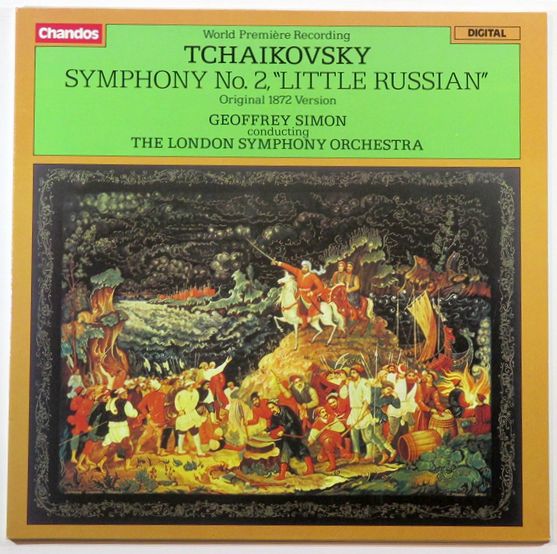 BD: Why have you purposely sought
out the original version of a Tchaikovsky symphony, or the odd orchestral
work by Respighi?
BD: Why have you purposely sought
out the original version of a Tchaikovsky symphony, or the odd orchestral
work by Respighi?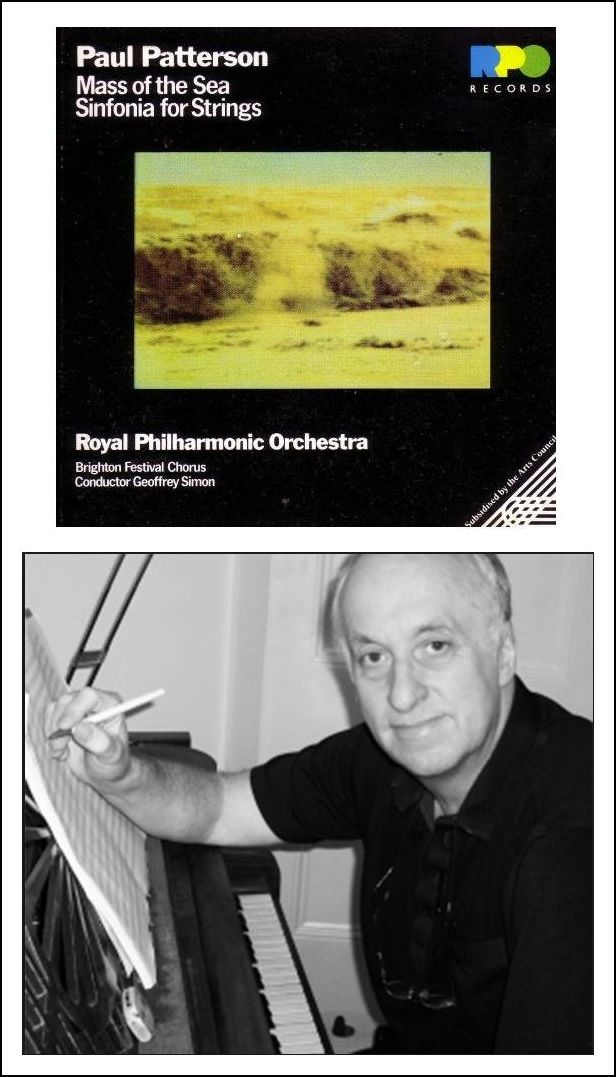 GS: The whole thing about audience acceptability has
become a necessary and pleasing catch word. We had the dark, dreary
days of the ’60s, the ’70s, and
even the early ’80s, where the critics would only
like it if the audience hated it. I would see audiences almost physically
driven away because the taste they read about in the newspapers as being
sophisticated was found so at odds with what their concert experience was.
I grew up during that period. I’m a ’60s child,
and my own emotions never related to the ‘squeaky gate’ stuff. But
I put up with it. I had to play it. I even became quite facile
at doing it without having my heart really deeply in there. So finally
we could come out in the open and say that twelve-tone music really didn’t
solve the problems, and didn’t really lead where people to the new Nirvana
of great music. We needed to get back to a different way of viewing
things, and disregard the music that was so cerebral and intellectually
structured that only a mathematician could either write or listen to it.
We had to look at the good old emotions, good old atmosphere, and good old
magic. That’s really what will transform the audience, and give the
orchestra a chance to revel in its own gorgeousness. I would never
say they are ‘banal’, but those
basic, approachable parts of music-making are totally crucial because, as
we said before, the attention span is small here against the commercial
world. I believe you’ve got seven seconds if you’re trying to sell
something. I’m not really of that world, but you know what I mean.
You’ve got about that long for somebody to ask what that is, and then when
they look at it they’re yours and entertain them. So you’ve got to
have material that can do that.
GS: The whole thing about audience acceptability has
become a necessary and pleasing catch word. We had the dark, dreary
days of the ’60s, the ’70s, and
even the early ’80s, where the critics would only
like it if the audience hated it. I would see audiences almost physically
driven away because the taste they read about in the newspapers as being
sophisticated was found so at odds with what their concert experience was.
I grew up during that period. I’m a ’60s child,
and my own emotions never related to the ‘squeaky gate’ stuff. But
I put up with it. I had to play it. I even became quite facile
at doing it without having my heart really deeply in there. So finally
we could come out in the open and say that twelve-tone music really didn’t
solve the problems, and didn’t really lead where people to the new Nirvana
of great music. We needed to get back to a different way of viewing
things, and disregard the music that was so cerebral and intellectually
structured that only a mathematician could either write or listen to it.
We had to look at the good old emotions, good old atmosphere, and good old
magic. That’s really what will transform the audience, and give the
orchestra a chance to revel in its own gorgeousness. I would never
say they are ‘banal’, but those
basic, approachable parts of music-making are totally crucial because, as
we said before, the attention span is small here against the commercial
world. I believe you’ve got seven seconds if you’re trying to sell
something. I’m not really of that world, but you know what I mean.
You’ve got about that long for somebody to ask what that is, and then when
they look at it they’re yours and entertain them. So you’ve got to
have material that can do that.